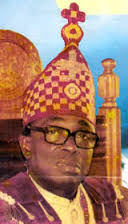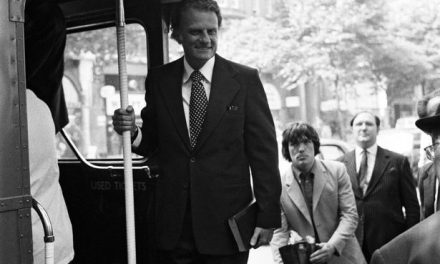Methodist Church Nigeria as a Bible based church is not without a missional principle of ecclesiastical polity, a constitution with all necessary comprehensiveness and clearness. The Constitution of Nigerian Methodist at heart is a biblical document bearing in mind that ‘the Scriptures are a sufficient rule of faith and practice.’ The agitation and measure of self-rule obtained by the Western and Easter regions of Nigeria in 1956 crept into Nigerian churches. The Methodist Church in Britain, the rock form which Nigerian Methodism was hewn after a long consultations received autonomy in 1962. The British Methodist Conference at Bradford in July 1961 recorded in its minutes, “The Conference, having received through its Missionary Committee, the joint request of the Eastern and Western Nigerian Synods for autonomy in one United Conference and noting that the two synods, in their joint Committee wish that the autonomous Conference shall be founded in 1962, gives thanks for the witness to the maturity of the Church in Nigeria and direct the Missionary Committee on the transfer of authority, in consultation with the Nigeria Districts to prepare for such a Conference and to present them in the Conference of 1962. The Conference heartily shares the desire of the Nigeria Synods for continued partnership in the life of the Church in Nigeria.’[1]
The emergence of Methodist Church Nigeria in 1962 was a new beginning under the leadership of Rev J.O.E Soremekun who took over from the last chairman of the Western Nigeria District Synod, Rev E J Jones (1956-1962). Rev Soremekun served as the first President of the Nigerian Methodist Conference with Dr Eyo. Moma as Vice President, however, the ‘the autonomy … did not change the original structure of the church leadership inherited from the British Conference.’[2] Sir Michael Familusi in his book, Methodism in Nigeria, explained that ‘the service in which the two synods were made one Conference began at 6:00pm on the 28th of September 1962 at the Methodist Church, Tinubu, Lagos,’ with representatives from the British Conference. According to Sir Familusi, ‘the Deed of Foundation and Church Order was signed by thirty four ministers and thirty two laymen from the synod of the Western Nigeria District: thirty five ministers and thirty four laymen from the synod of the Eastern Nigeria District. The delegation from the British Methodist Church Reverend Leslie Davidson inaugurated the Nigerian Nigerian Conference after signing the Deed of Foundation and declared the Conference duly constituted.’[3] The Foundation Conference of the Methodist Church Nigeria as an autonomous body lasted from October 1-5, 1962 and the Rev G Egemba Igwe was appointed Secretary of Conference. The Deed of Foundation and Church Order was adopted to be the Constitution and was used throughout the period of 1962-1975.
From the cycle of Nigerian Methodist presidential leadership shaped by the inherited British Methodist structure, Rev Professor Bolaji Idowu on 4th October, 1972 was elected president. During his service of investiture and consecration on 20th January, 1973, Professor Idowu, expressed the need to review the inherited presidential constitution in a way to reflect and emphasis indigenization of Nigerian Methodism.[4] Idowu’s fresh expression of Nigerian Methodism led to the 1974 Asaba Retreat for prayer and thorough review of the church liturgy and adoption of an episcopal system of church leadership.
Professor Idowu facilitated numerous transformational leadership retreats for the members of the Committee of the Life of the Church, Faith and Order, and Law and Polity with representatives across the Conference area. The main outstanding retreat met at Asaba Rural Training Centre, Awani from 1st to 3rd February 1974. Beyond the idea of structural reordering of the church, the document presented by Professor Idowu on ‘Matters Relating to the Life of the Church, Faith and Order suggests the Lamb’s leadership and reverence devotional lifestyle and worship in contrast to ‘secular leadership which pursues productivity and efficiency as its main goal.’ Asaba document summons the church to a relational episcopacy and leadership model which transcends pragmatic thinking on leadership.
Under the chairmanship of Justice Olu Ayoola, the Constitution Drafting Committee at the 13th annual conference of the church in 1974, ‘introduced a new constitution with the ecclesiastical traditional and episcopal title of Lay- Presidents, Deacons, Priests, Presbyters, Bishop, Archbishop and Patriarch. The new Constitution was passed at the Calabar Conference in 1975 and on January 20th, 1976, generally referred to as The Appointed Day, the Patriarch, Archbishops and Bishops were invested and consecrated.[5] Beyond the crisis that followed, the adoption of the 2006 Constitution and the on-going review of the 2006 Constitution, the question remains, based on decline and divisions within Methodism globally, what is the essence of Appointed Day in the Nigerian Methodist leadership autonomy?
The danger in past among the causes of the crisis and in our membership decline today is that, ‘leadership styles and the attendant behaviour of mission practitioners and church administrators too often demonstrate leadership attitudes and practices that reflect cultural norms while violating biblical norms.’ The Appointed Day celebration and its aftermath effects reminds us of both ‘historical and contemporary evidence of a predictable migration from leadership as service to leadership as control— such as autocracy, coercion, self-ascendancy, and dominance.’ The Appointed Day Celebration reminds us about the urgency and need for leadership renewal in the 21st Century. The theology behind “The Appointed Day” is rooted in the personal experience through personal encounter with God as contained in Asaba Retreat papers, a biblical document bearing in mind that ‘the Scriptures are a sufficient rule of faith and practice.’ The question for us to ponder on is, how many of the Asaba Retreat spiritual formation processes are included in our leadership training?
Asaba Retreat is about
ecclesiastical polity, transparency, humility, and spirituality. The
facilitator of the Retreat, Professor Bolaji Idowu based on his passion for our
selfhood spirituality and excellence provided a spiritual framework for our
episcopacy just as ‘the founder of the Church has provided better for its
interests, than to commit its affairs to the control of fallible men.’ Asaba
Retreat provides a template for Christian leadership and membership as
spiritual, theological, moral, eschatological, ecclesiological, relational, and
missional. The Appointed Day at 44 is about rethinking Asaba Retreat in order
to overcome problems in church and ‘leadership practices primarily informed by
cultural norms apart from God’s Word.’ The Appointed Day at 44 calls us to be
counter cultural against cultural and secular norms that violates Methodist
Scriptural holiness and other biblical principles. Using the words of Gyeongchun
Choi, The Appointed Day at 44 is a missional reality that creates an urgent
need for ‘the application of biblical principles that transcend cultures and
bring leadership practices into alignment with the character and behaviour of
the Trinity. ‘
[1] Survenir of the Commemoration of the Autonomy of the Methodist Church Nigeria, 1962, p 53
[2] Okegbile, Deji, Missional Leadership for Repositioning Nigerian Methodism (Lagos: Alet Inspirationz, 2019), p. 5
[3] Familusi, Michael, Methodism in Nigeria (Revised Edition – 1842-2012) (Lagos: Methodist Publishing Company, 2012), pp. 121-122
[4] Okegbile, Missional Leadership, pp. 6-7
[5] Okegbile, Missional Leadership, p. 7











Recent Comments